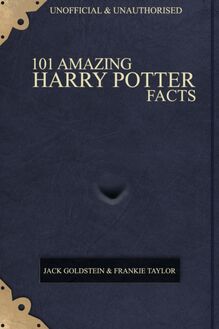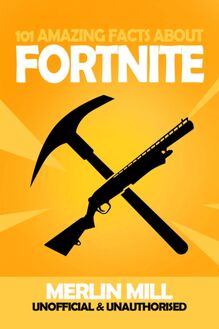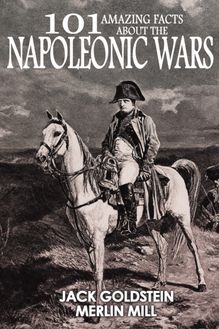-
 Univers
Univers
-
 Ebooks
Ebooks
-
 Livres audio
Livres audio
-
 Presse
Presse
-
 Podcasts
Podcasts
-
 BD
BD
-
 Documents
Documents
-
- Cours
- Révisions
- Ressources pédagogiques
- Sciences de l’éducation
- Manuels scolaires
- Langues
- Travaux de classe
- Annales de BEP
- Etudes supérieures
- Maternelle et primaire
- Fiches de lecture
- Orientation scolaire
- Méthodologie
- Corrigés de devoir
- Annales d’examens et concours
- Annales du bac
- Annales du brevet
- Rapports de stage
La lecture à portée de main
101 Amazing Facts about the Napoleonic Wars , livre ebook
18
pages
English
Ebooks
2021
Écrit par
Jack Goldstein
Publié par
Andrews UK
Vous pourrez modifier la taille du texte de cet ouvrage
Obtenez un accès à la bibliothèque pour le consulter en ligne En savoir plus
Découvre YouScribe en t'inscrivant gratuitement
Découvre YouScribe en t'inscrivant gratuitement
18
pages
English
Ebook
2021
Vous pourrez modifier la taille du texte de cet ouvrage
Obtenez un accès à la bibliothèque pour le consulter en ligne En savoir plus
Publié par
Date de parution
29 juin 2021
Nombre de lectures
1
EAN13
9781789825923
Langue
English
Poids de l'ouvrage
1 Mo
Publié par
Date de parution
29 juin 2021
Nombre de lectures
1
EAN13
9781789825923
Langue
English
Poids de l'ouvrage
1 Mo
101 Amazing Facts about the Napoleonic Wars
Merlin Mill & Jack Goldstein
101 Amazing Facts about the Napoleonic Wars
Published in 2021 by Jack Goldstein Books
Digital Edition converted & distributed by
Andrews UK Limited
www.andrewsuk.com
Copyright © 2021 Merlin Mill & Jack Goldstein
The rights of Merlin Mill and Jack Goldstein to be identified as the authors of this work have been asserted in accordance with the Copyright, Designs and Patents Act 1988.
All rights reserved. No part of this publication may be reproduced, stored in a retrieval system, or transmitted, in any form or by any means without the prior written permission of the publisher, nor be otherwise circulated in any form of binding or cover other than that in which it is published and without a similar condition being imposed on the subsequent purchaser. Any person who does so may be liable to criminal prosecution and civil claims for damages.
The views and opinions expressed herein belong to the authors and do not necessarily reflect those of Andrews UK Limited.
The History of France & Europe The history of France as we know it today effectively began in around 600 B.C. when Greek travellers founded the colony of Massalia – present-day Marseilles – on the Mediterranean shore. Between the founding of the colony and the early Middle Ages, a significant part of today’s France came to be referred to as Gaul . Over the centuries, various tribes fought, conquered and formed alliances which eventually led to Hugh Capet being crowned King of the Franks (essentially modern-day France’s first king) in 987 A.D. During what we call the ‘early modern period’ or the Renaissance – essentially the 14 th to the 17 th centuries A.D. – monarchies and ruling families in Europe became more powerful than the Church, who (through their bishops, archbishops, and the pope) had been the dominant leaders for centuries before. This state of affairs was particularly intense in France where multiple religious revolts and conflicts developed throughout the centuries, eventually resulting in the nation’s relatively difficult relationship with the Catholic Church. Though we now think of English as the world’s international language, in the 17 th and 18 th centuries, French was the most commonly used diplomatic tongue – owing to France’s sophisticated diplomatic system whereby they would appoint permanent ambassadors to each European nation; this system was soon adopted by almost every other country in the world. By the 18 th century, the industrial revolution had begun. After Britain, France was the first major power to embrace this widespread change to human life, quickly adapting technology to improve agriculture, trade – and of course, warfare. Despite the tangled conflicts of the 1700’s, like the War of the Austrian Succession and the Seven Years War, the various alliances between monarchies resulted in a balance where no single country was powerful enough – or had the right combination of allies – to completely dominate in continental Europe. Most of the 17 th and 18 th centuries were dominated by massive land wars fought in Europe, but by the late 1700’s, naval supremacy and global trade gained increasing importance, primarily pioneered by the British and Dutch; this would lead to a huge role for navies and naval blockades during the Napoleonic Wars. Leading up to the Napoleonic Wars, the Holy Roman Empire – an almost one thousand-year-old group of territories – had been slowly declining. It became increasingly decentralised and had, in recent centuries, even seen multiple internal conflicts – particularly between the smaller Germanic states in the North. France was ruled by a monarchy until 1789, when the French Revolution began. The lower classes rebelled against the aristocracy, starting a civil war which would last almost two years. This would not only cause an internal struggle but also convince the other powers of Europe to take up arms against the fledgling revolutionaries. Over the next decade, revolutionary France fought a number of conflicts with her neighbours, which are sometime

Ebooks
101 Amazing Facts About BTS
Merlin Mill

Ebooks
Témoignages et autobiographies
101 Amazing Facts About BTS
Merlin Mill
15 pages
English

Ebooks
101 Amazing Harry Potter Facts
Jack Goldstein


Ebooks
101 Amazing Facts about Fortnite
Merlin Mill


Ebooks
101 Amazing Facts about J.K. Rowling
Holger Wessling


Ebooks
101 Amazing One Direction Facts
Jack Goldstein

Ebooks
Témoignages et autobiographies
101 Amazing One Direction Facts
Jack Goldstein
16 pages
English

Ebooks
101 Amazing Facts about Billie Eilish
Holger Wessling

Ebooks
Témoignages et autobiographies
101 Amazing Facts about Billie Eilish
Holger Wessling
13 pages
English

Ebooks
101 Amazing Facts about the Napoleonic Wars
Jack Goldstein

Ebooks
Histoire
101 Amazing Facts about the Napoleonic Wars
Jack Goldstein
18 pages
English

Ebooks
101 Amazing Facts about Fire Emblem
Merlin Mill


Ebooks
101 Amazing Facts about Squid Game
Merlin Mill


Ebooks
101 Amazing Facts about Tanks
Merlin Mill

-
 Univers
Univers
-
 Ebooks
Ebooks
-
 Livres audio
Livres audio
-
 Presse
Presse
-
 Podcasts
Podcasts
-
 BD
BD
-
 Documents
Documents
-
Jeunesse
-
Littérature
-
Ressources professionnelles
-
Santé et bien-être
-
Savoirs
-
Education
-
Loisirs et hobbies
-
Art, musique et cinéma
-
Actualité et débat de société
-
Jeunesse
-
Littérature
-
Ressources professionnelles
-
Santé et bien-être
-
Savoirs
-
Education
-
Loisirs et hobbies
-
Art, musique et cinéma
-
Actualité et débat de société
-
Actualités
-
Lifestyle
-
Presse jeunesse
-
Presse professionnelle
-
Pratique
-
Presse sportive
-
Presse internationale
-
Culture & Médias
-
Action et Aventures
-
Science-fiction et Fantasy
-
Société
-
Jeunesse
-
Littérature
-
Ressources professionnelles
-
Santé et bien-être
-
Savoirs
-
Education
-
Loisirs et hobbies
-
Art, musique et cinéma
-
Actualité et débat de société
- Cours
- Révisions
- Ressources pédagogiques
- Sciences de l’éducation
- Manuels scolaires
- Langues
- Travaux de classe
- Annales de BEP
- Etudes supérieures
- Maternelle et primaire
- Fiches de lecture
- Orientation scolaire
- Méthodologie
- Corrigés de devoir
- Annales d’examens et concours
- Annales du bac
- Annales du brevet
- Rapports de stage





